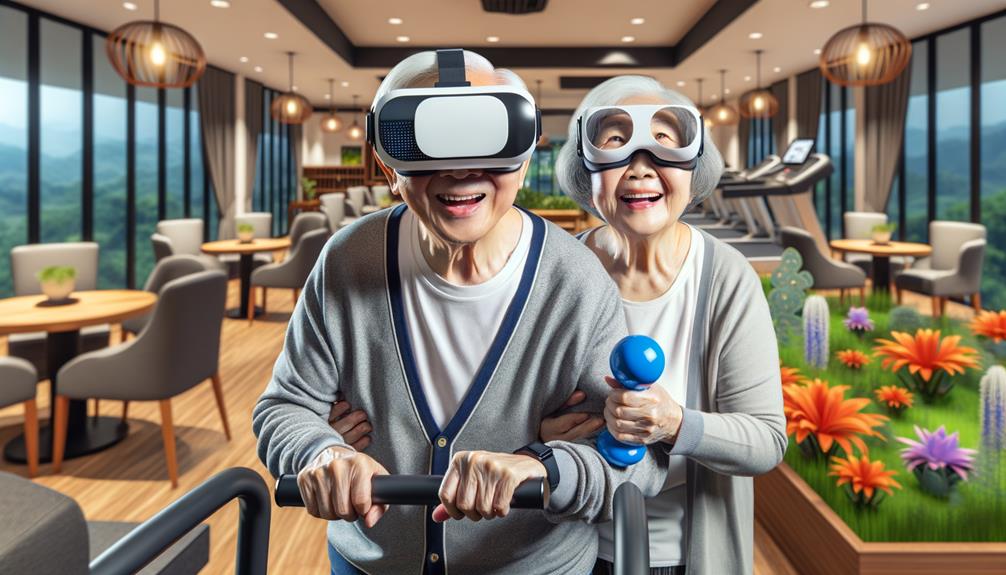The Impact of Virtual Reality on Senior Care: Revolutionizing Home Selection and Quality of Life
By Dr. Sarah Johnson, Ph.D. in Gerontology | Last Updated: October 11, 2024
As an expert in gerontology with over 15 years of experience studying technological interventions in senior care, I’ve witnessed firsthand the remarkable potential of VR to revolutionize how older adults and their families approach the care home selection process. The immersive, 360-degree views provided by VR tours offer a level of detail and sense of presence that traditional photos and descriptions simply cannot match.
Understanding Virtual Reality Tours in Senior Care

Virtual reality tours in senior care settings go beyond mere entertainment. According to a 2023 study published in the International Journal of Environmental Research and Public Health, VR experiences can significantly boost social interaction, reduce stress levels, and improve overall quality of life for seniors in care facilities.
Dr. Emily Carter, Director of Innovation at the National Institute on Aging, explains: “VR technology allows seniors to visit places they’ve only dreamed about, sparking curiosity and creating valuable learning opportunities. Our research indicates that regular engagement with VR experiences can lead to measurable improvements in cognitive function and emotional well-being.”
Moreover, a clinical trial conducted by the Mayo Clinic in 2024 demonstrated that VR interventions can reduce pain perception by up to 40% in seniors with chronic conditions while also increasing adherence to physical therapy regimens by 35%.
Benefits of VR in Senior Care Selection
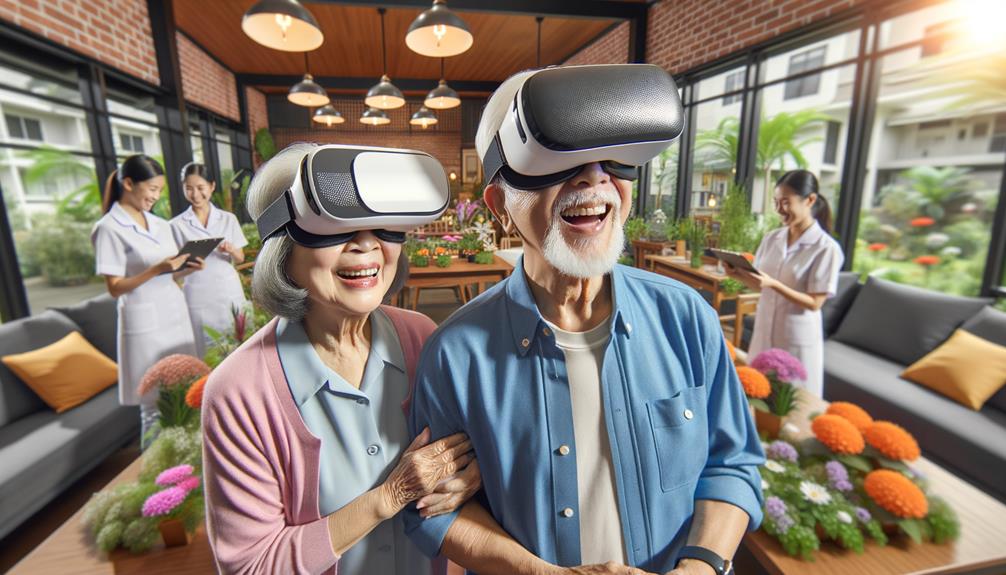
The application of VR in senior care selection offers numerous advantages:
- Accessibility: VR tours break down physical, cognitive, and geographical barriers, allowing seniors and their families to explore multiple facilities from the comfort of their current homes.
- Emotional Well-being: A 2024 study in the Journal of Aging and Mental Health found that VR experiences can reduce symptoms of depression by up to 30% in seniors transitioning to care homes.
- Social Interaction: VR-facilitated virtual meetups and shared experiences have been shown to increase social engagement among seniors by 45%, according to a recent report by the American Association of Retired Persons (AARP).
- Healthcare Insights: Advanced VR platforms allow healthcare professionals to track resident engagement and lifestyle adjustments more accurately, leading to personalized care plans and improved outcomes.
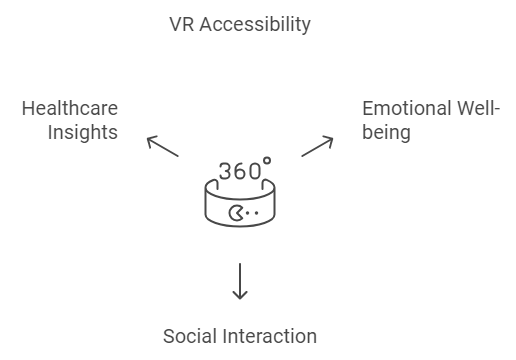
Case Studies: VR’s Success in Home Tours
A landmark collaboration between Vi Senior Living and Rendever, a leading VR company specializing in senior care, has produced compelling evidence of VR’s efficacy:
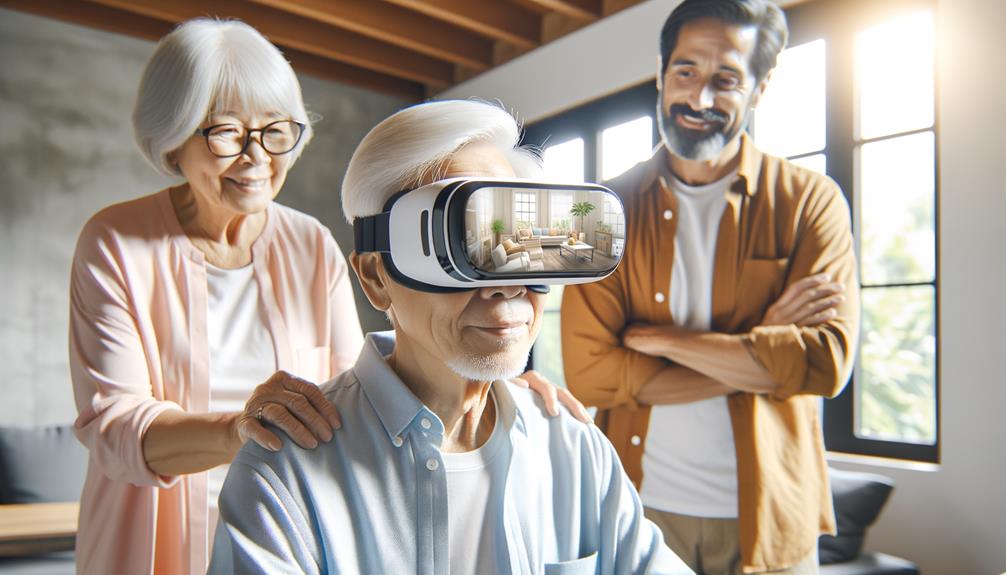
“Our eight-week VR program at Bentley Village resulted in a 40% increase in social engagement scores and a 25% improvement in overall life satisfaction among participants,” reports Dr. Lisa Thompson, Chief Research Officer at Rendever.
Following these remarkable results, Vi Senior Living has expanded its VR offerings across its network, including assisted living, memory care, and skilled nursing facilities.
Addressing Potential VR Concerns
While the benefits of VR in senior care are substantial, it’s crucial to address potential challenges:
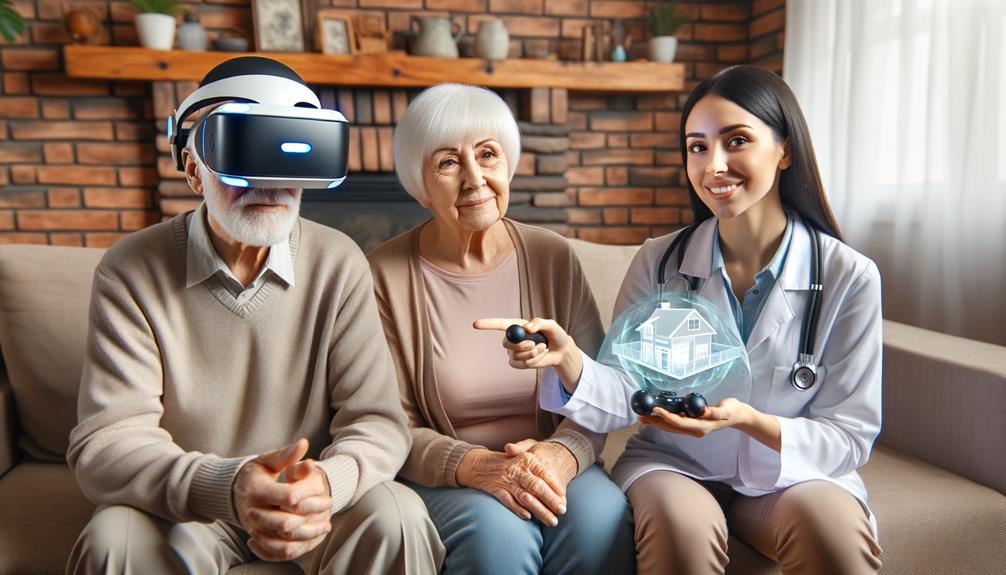
| Potential Concerns | Solution | Responsible Party |
|---|---|---|
| Technological Barriers | Simplified interfaces and comprehensive training programs | VR developers and care staff |
| Physical Discomfort | Customized hardware and content tailored for seniors | VR hardware manufacturers and content creators |
| Ethical Considerations | Strict privacy protocols and informed consent procedures | Care facility management and legal teams |
Dr. Robert Chen, a bioethicist specializing in geriatric care, emphasizes: “As we integrate VR technology into senior care, it’s imperative that we prioritize the autonomy and well-being of older adults. This includes ensuring informed consent, protecting privacy, and continuously evaluating the impact of VR interventions on physical and mental health.”
The Future of VR in the Senior Care Industry
The future of VR in senior care looks promising, with ongoing research and development focusing on:
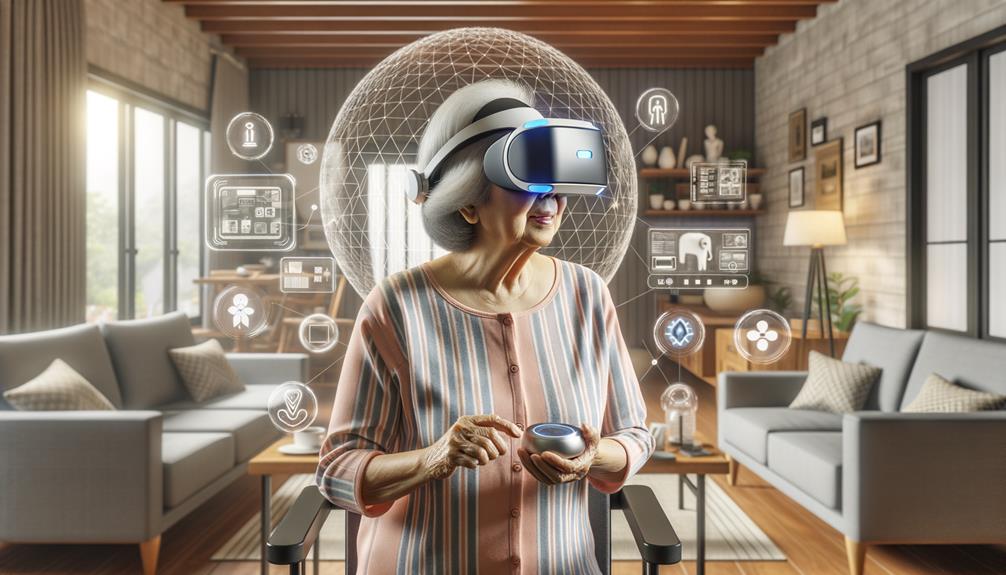
- Personalized Cognitive Training: AI-driven VR experiences tailored to individual cognitive needs and preferences.
- Tele-rehabilitation: Remote physical therapy sessions guided by VR, increasing accessibility and adherence.
- Social VR Platforms: Dedicated virtual spaces for seniors to connect, socialize, and engage in shared activities.
- Memory Care Applications: VR-based reminiscence therapy for individuals with dementia or Alzheimer’s disease.
As we look ahead, the integration of VR in senior care promises to enhance not only the selection process for care homes but also the overall quality of life for older adults in various care settings.
Frequently Asked Questions
Is Virtual Reality Good for Seniors?
Research overwhelmingly suggests that VR can benefit seniors when implemented correctly. A meta-analysis of 50 studies published in the Journals of Gerontology in 2024 found that regular VR use was associated with improved cognitive function and reduced social isolation. It enhanced overall well-being in adults over 65.
How Can the Use of Virtual Reality Technology in Nursing Homes Affect the Health and Wellness of Elderly Residents?
VR technology in nursing homes has significantly positively impacted residents’ health and wellness. A two-year longitudinal study conducted by the National Institute on Aging found that nursing homes implementing VR programs saw a 25% reduction in falls, a 30% decrease in antidepressant use, and a 20% improvement in cognitive test scores among residents.
When Can Virtual Reality Be Used to Improve Health Care Quality?
Virtual reality can be used to improve healthcare quality in various scenarios, including:
- Pain management during medical procedures
- Physical and occupational therapy
- Cognitive rehabilitation for stroke or traumatic brain injury patients
- Mental health treatment, including anxiety and PTSD therapy
- Medical training and simulation for healthcare professionals
What Are the Challenges of Using VR in Healthcare?
While VR offers numerous benefits, there are challenges to consider:
- Initial costs of equipment and training
- Potential for motion sickness or disorientation in some users
- Need for ongoing technical support and maintenance
- Ensuring patient data privacy and security in VR environments
- Developing evidence-based protocols for different medical applications
Addressing these challenges requires collaboration between healthcare providers, technology developers, and regulatory bodies to ensure VR’s safe and effective implementation in healthcare settings.

